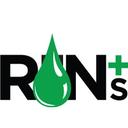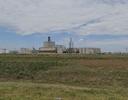BEI partners with Advanced Enzymes, deploys several new systems
July 21, 2014
BY Ron Kotrba
On Friday I caught up with the founder of Texas-based Biodiesel Experts International LLC, Ernie DeMartino, who shared updates on his latest projects. BEI designs and builds small-scale biodiesel production systems using conventional or enzymatic process technologies. Many of the BEI systems currently being deployed are enzymatic, in partnership with enzyme maker Advanced Enzymes. BEI’s previous enzyme supplier was Israel-based TransBiodiesel.
DeMartino says one of his enzymatic plants scaled at 300 liters/hour arrived in Dallas for the school systems a few months ago and is up-and-running, but it’s operating in manual rather than automated mode until flow meter issues get resolved by the end of the month. A dry-wash column is also scheduled to be installed. DeMartino says the school system is using used cooking oil as feedstock, but it’s not collected from schools (since many of them have moved away from fried foods, he says) but rather a nearby stadium and a food manufacturer. He says the biodiesel produced is blended for use in Dallas school buses.
Advertisement
DeMartino has been traveling to and from Hong Kong lately too, installing an enzymatic system at Hop Hing Oil Factory Ltd., a vegetable oil producer that wants to use the BEI system for R&D. This system is smaller than the Dallas system, scaled at 50 liters/hour. He says the company wants to test phospholipids and acid oils through the enzymatic biodiesel process.
This week DeMartino is headed to Ellsworth, Maine, where Coastal Energy is installing a 50 liter/hour enzymatic system from BEI. He says other installations of BEI systems are planned in California, Utah and Canada, keeping him and his crew very busy.
Advertisement
For its enzymatic units, BEI uses Advanced Enzymes’ immobilized rather than liquid enzymes. Advanced Enzymes began in India more than 50 years ago and is the largest enzyme producer in Central Asia. It exports enzymes to more than 45 countries on six continents, and the company produces more than 55 different enzymes and 400 products.
DeMartino says immobilized enzymes, attached to a high-quality carrier by Advanced Enzymes, offer advantages over the liquid variety. He says liquid enzymes can be difficult to separate from glycerin whereas immobilized enzymes require no separation; and users of liquid enzymes experience losses that do not occur when using immobilized enzymes. DeMartino says liquid enzymes can only be used for batch processing but immobilized enzymes allow for continuous production, adding that reaction time using liquid enzymes can take between 20 and 24 hours while reaction time in a stirred reactor using immobilized enzymes is only four hours. He also says liquid enzymes must be refrigerated while immobilized enzymes can be stored at 70 degrees F, and kept dry and out of sunlight. Finally, DeMartino says liquid enzymes cannot be recovered from high FFA material whereas immobilized enzymes involve no recovery, since they are fixed to a carrier and held in stirred reactors.
Congratulations Ernie, on your continued success, and we here at Biodiesel Magazine wish you the best.
Related Stories
Biodiesel capacity in the U.S. and Canada dipped slightly stable in 2024, with several renewable diesel producers reporting headwinds and lower margins alongside a drove of SAF projects in various stages of development.
The IEA’s Task 39 group has new research regarding the development and status of the sustainable aviation fuel industry.
The U.S. EPA on Nov. 16 released updated RIN data, reporting that nearly 2.11 billion RINs were generated under the RFS in October, up from 1.81 billion generated during the same month of last year.
Conestoga to host SAFFiRE cellulosic ethanol pilot plant
Conestoga Energy and SAFFiRE Renewables LLC announced on Nov. 16 their agreement for Conestoga to host SAFFiRE’s cellulosic ethanol pilot plant at Conestoga’s Arkalon Energy ethanol facility in Liberal, Kansas.
Officials at Calumet Specialty Products Partners L.P. discussed the company’s proposed plans to boost sustainable aviation fuel (SAF) production at its Montana Renewables biorefinery during third quarter earnings call, held Nov. 9.
Upcoming Events










